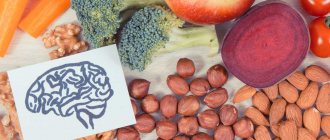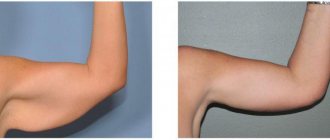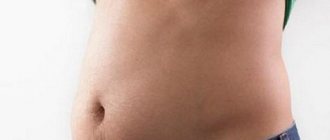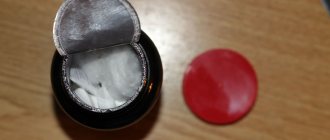Therefore, before you decide to fast, you should undergo an examination and get a doctor’s consultation about how specifically your body is ready for such a procedure.
Therapeutic fasting changes gene activity
During the period of fasting, due to a deficiency of methionine and carbohydrates, the activity of mTOR kinase is inhibited, and this triggers important cellular repair processes. For example, the removal of intracellular debris is autophagy.
Link(s) to study(s):
- www.ncbi.nlm.nih.gov/pmc/articles/PMC3106288/
The expression of sirt1, sirt2 and sirt3 is activated, which helps prevent cancer.
Link(s) to study(s):
- www.ncbi.nlm.nih.gov/pubmed/24048020
The activity of neurotrophic factors such as bdnf and the glial cell line neurotrophic factor gdnf is enhanced. The activity of these factors helps prevent brain stroke and Alzheimer's disease. The activity of IGF-1 and NF-kb decreases, which also helps prevent cancer. Many other beneficial changes in gene expression occur:
Link(s) to study(s):
- www.ncbi.nlm.nih.gov/pubmed/24048020
- www.ncbi.nlm.nih.gov/pmc/articles/PMC2622429/
Therapeutic fasting changes the way hormones work
During fasting, insulin levels in the blood sharply decrease, which makes it easier to burn fat.
Link(s) to study(s):
- www.ncbi.nlm.nih.gov/pubmed/15640462
During fasting, the level of growth hormone in the blood can increase as much as 5 times
Link(s) to study(s):
- www.ncbi.nlm.nih.gov/pmc/articles/PMC329619/
- www.ncbi.nlm.nih.gov/pubmed/1548337
Higher levels of this hormone promote fat burning and muscle gain, and have many other benefits.
Link(s) to study(s):
- www.ncbi.nlm.nih.gov/pubmed/12425705
- www.ncbi.nlm.nih.gov/pubmed/2355952
The nervous system sends norepinephrine (norepinephrine) to fat cells to break down free fatty acids for energy.
Link(s) to study(s):
- www.ncbi.nlm.nih.gov/pubmed/12107252
- www.ncbi.nlm.nih.gov/pubmed/10837292
Therapeutic fasting helps you lose weight
Therapeutic fasting allows you to lose weight
Link(s) to study(s):
- www.ncbi.nlm.nih.gov/pubmed/25540982
Lower insulin levels, higher growth hormone levels, and increased norepinephrine (noradrenaline) all increase the breakdown of fat in the body and make it easier to use for energy. For this reason, short-term reduction of IGF-1 to optimal levels through short fasting cycles actually increases your body's metabolic rate by 3.6-14%, helping you burn even more calories than in normal life.
Link(s) to study(s):
- www.ncbi.nlm.nih.gov/pubmed/2405717
- www.ncbi.nlm.nih.gov/pubmed/10837292
Fasting day. One-day fasting
A one-day fast or fasting day, of course, is not as effective as a long-term refusal to eat, but it can give you a great experience and incredible confidence in your abilities. Undoubtedly, this technique has a powerful healing effect, increasing the level of immunity, cleansing the body and rejuvenating it.
The main results of fasting “one day”:
- The habit of being content with little. Daily fasting gradually teaches a person to eat small amounts of food, avoiding overeating. Every person is capable of not consuming food for quite a long time. His body, which contains a large number of reserves, including fat, helps him in this. In order for the body to begin to actively use them, it needs time to rebuild. Gradually, he is making a transition to a different type of energy consumption. For most modern people, who do not take even a four-hour break between meals, this ability of the body simply atrophies.
- This technique will help you develop a healthy attitude towards food and diets. In addition, she easily breaks habitual thinking patterns. Daily fasting clearly demonstrates that, being without food for just one day, you will feel great, of course, following certain nuances.
- By giving up food for one day, you can gain basic control over your body. This procedure helps to establish a dialogue between a person and his body. It is this factor that leads to a more meaningful and healthy life.
- This method will also teach you the skills to control the false feeling of hunger that most of us suffer from.
- The natural mechanism awakens, a healthy feeling of hunger appears. In most cases, we eat like robots by the hour without feeling hungry, which can affect our figure and overall health.
- It is known that the digestion process takes up to 80% of our internal energy of body and mind. The practice of daily fasting can be used to further increase attention and internal composure. This is very suitable for moments when we need to quickly complete some very important task or enter a state of creative impulse. You can get such benefits from a simple practice like one-day fasting.
Therapeutic fasting preserves muscles
One of the worst side effects of calorically optimal nutrition is that the body tends to burn both fat and muscle.
Link(s) to study(s):
- www.ncbi.nlm.nih.gov/pubmed/17075583/
One commentary study found that reducing IGF-1 to optimal levels through short fasting cycles causes less muscle loss than constant optimal caloric feeding. And this is very important, since optimal calorie nutrition, although it prolongs life, makes a person thin. This is a big advantage of fasting over low-calorie eating. But it is worth remembering that this effect occurs only with a short fast.
Link(s) to study(s):
- www.ncbi.nlm.nih.gov/pubmed/ 21410865
In one study, participants ate the same number of calories as before, except for only one large meal in the evening. And they lose more fat but have gains in muscle mass—along with a host of other beneficial effects in health markers
Link(s) to study(s):
- https://ajcn.nutrition.org/content/85/4/981.short
A little about sad things: contraindications
This diet is more flexible than most other low-calorie weight loss programs. Strict restrictions only apply for two days, so your meal schedule is flexible, which has less impact on your lifestyle - you can easily go on “free” days to barbecue, to a restaurant, etc.
But not everything is so smooth; there are still contraindications:
- eating disorders;
- tendency to overeat (after fasting days there will be a great danger of slipping and doing bad things);
- colitis, gastritis and other gastrointestinal problems.
Despite the relative permissiveness, do not forget about balance
On fasting days, avoid physical exercise and strength training; the feeling of hunger coupled with overexertion can cause dizziness and weakness. Don't overdo it, and with the 5:2 diet your weight loss score will be 100500:0. Good luck.
Therapeutic fasting prevents diabetes
Type 2 diabetes has become incredibly common in recent decades. Its main feature is high blood sugar levels in conditions of insulin resistance. Anything that reduces insulin resistance should help lower blood sugar and protect against type 2 diabetes.
Interestingly, reducing IGF-1 to optimal levels through short fasting cycles has a beneficial effect on insulin resistance and leads to an impressive reduction in blood sugar levels. One study on diabetic rats found that fasting protected against kidney damage, one of the most severe complications of diabetes.
Link(s) to study(s):
- www.ncbi.nlm.nih.gov/pubmed/17316625
- www.ncbi.nlm.nih.gov/pubmed/26135345
This means that reducing IGF-1 to optimal levels through short fasting cycles may protect people at risk of diabetes. But all this applies only to short fasting. So one study showed that blood sugar control worsens after a long 22-day fast!!!
Link(s) to study(s):
- www.ncbi.nlm.nih.gov/pubmed/15833943
Rules for fasting 36 hours
Enough theory, at this point you know enough to start a 36-hour fast on the water.
- We start fasting in the evening. A light dinner of raw or steamed vegetables will be a good solution for the next day and a half. The first night passes without any problems; it is important to get a good night’s sleep so that in the morning you can begin the procedure with full strength.
- We use shanka-prakshalana or an enema, so we will clean out all the impurities that entered the body along with dinner.
- Try not to think about unpleasant sensations if they already arise. Don’t torture yourself with difficult work, sleep more, occasionally diluting your rest with physical exercise or meditation. Short walks in the fresh air are possible; you need to take a bottle of clean water or mineral water with you.
We recommend that you familiarize yourself with the material: Yoga for two - asanas and technique.
How to break a 36 hour fast
- When 36 hours are over, it is important to exit the fast correctly. No fatty foods, meat or soups. Drink watery juices, eat fruit puree, so that the body gradually adjusts to its usual way.
- Unprecedented lightness can be felt a few days after fasting if you maintain the right regime and do not return to heavy food. Many people become vegetarians after a 36 hour fast. This has its own meaning, but we have no right to impose anything.
- The benefits of water fasting are recognized by educated people from completely different fields, be it psychiatry, dietetics or sports. Positive reviews come regularly.
Surprisingly, fasting was prescribed even to people suffering from schizophrenia, and the result amazed famous specialists: patients became calmer, exacerbations of diseases occurred less frequently. If the procedure helps even with such serious diagnoses, there is no doubt about its effectiveness. The most important thing is to be careful and know when to stop. Be healthy, we wish you good luck!
Therapeutic fasting suppresses inflammation
Oxidative stress is one of the steps towards aging and many chronic diseases
Link(s) to study(s):
- www.ncbi.nlm.nih.gov/pubmed/15123782
It involves unstable molecules called free radicals that react with other important molecules (such as DNA)
Link(s) to study(s):
- www.hindawi.com/journals/bmri/2014/761264/
Some research suggests that reducing IGF-1 to optimal levels through short fasting cycles may increase the body's resistance to oxidative stress
Link(s) to study(s):
- www.ncbi.nlm.nih.gov/pubmed/17291990/
Additionally, research suggests that reducing IGF-1 to optimal levels through short fasting cycles may help combat systemic inflammation, another important mechanism of human aging.
Link(s) to study(s):
- www.ncbi.nlm.nih.gov/pubmed/17291990/
- www.ncbi.nlm.nih.gov/pubmed/17374948
- www.ncbi.nlm.nih.gov/pubmed/23244540
r
Therapeutic fasting protects the heart
Heart disease is now the world's biggest killer
Link(s) to study(s):
- www.cdc.gov/nchs/fastats/leading-causes-of-death.htm
Various health markers (called “risk factors”) are known to be associated with an increased or decreased risk of developing heart disease. Therapeutic fasting improves many different risk factors, including blood pressure, total and LDL cholesterol, blood triglycerides, inflammatory markers and blood sugar levels
Link(s) to study(s):
- www.ncbi.nlm.nih.gov/pubmed/19793855
- www.ibimapublishing.com/journals/ENDO/2014/459119/459119.html
- www.ncbi.nlm.nih.gov/pubmed/26135345
- www.lighterlifefast.com/media/35270/3-Health-Effects-of-Intermittent-Fasting.pdf
However, much of this is based on animal studies. The effects of fasting on heart health need to be studied further in humans before recommendations can be made.
Benefits and harms
The fact that short-term water fasting is beneficial was proven through scientific experiments by Yoshinori Osumi. However, in some situations it can pose a health hazard.
Benefit
The best part of short-term methods is that the autophagy process starts. As was written above, as a result, the body is freed from diseased cells and self-healing and self-rejuvenation occurs.
Without receiving nutrition from the outside, the body enters a state of stress and begins to solve the problem of how to survive in new conditions. This forces him to activate his defensive forces, which are designed to destroy any threats. Therefore, experts say that short-term fasting restarts the immune system. She begins to actively fight infections, fungi, viruses. Therefore, people who regularly practice short-term abstinence from food rarely get sick.
Those planning to use short-term fasting to lose weight should understand that this will be a fairly long process. After all, during the very first attempts, waste, toxins, and excess water accumulated in the tissues will be used. This will ensure a weight reduction of 2-3 kg, no more. Then a plateau effect may occur as the body becomes focused on other tasks. But as soon as it reaches the adipocytes, weight loss begins. To achieve results, you need to play sports and apply one of the schemes of abstaining from food on an ongoing basis.
For bodybuilders, intermittent hour-long fasting is an opportunity to pump up sculpted mass. At the same time, it is recommended not to give up sports nutrition and focus on strength training.
In addition, they are useful because:
- improve intellectual abilities;
- relieve depression;
- cleanse the body of debris;
- reduce blood sugar and cholesterol levels;
- stabilize blood pressure;
- eliminate swelling, foci of inflammation;
- reduce the risk of developing cancer, diabetes, Alzheimer's and Parkinson's diseases, cerebral palsy;
- speed up metabolism;
- increase life expectancy.
The benefits of short-term fasting for the body have been scientifically proven and leave no one in doubt.
Harm
First, there may be side effects. They happen for various reasons: due to non-compliance with contraindications, failure to follow recommendations for each individual regimen, dietary errors, and individual characteristics of the body. It’s good that they are not as serious as with long-term abstinence from food, and they can always be quickly eliminated.
Side effects and ways to eliminate them:
- constipation - during the eating window, take Fortrans, magnesia or any other laxative;
- headaches - slightly increase your salt intake and walk more;
- heartburn - stop smoking, sleep on a bed with a high headboard (almost half-sitting), do not wear clothes that tighten your stomach, drink mineral water;
- muscle spasms - review your workouts, distribute the load evenly, increase the amount of healthy protein products in your diet (fermented milk, chicken breast, eggs).
Secondly, sometimes after short-term fasting there is a deterioration in well-being. This usually happens in the presence of diseases that are contraindications for this nutritional system. These include:
- cachexia, nutritional deficiency, anorexia, underweight;
- malignant neoplasms;
- carrying a child and breastfeeding it;
- focal tuberculosis, chronic obstructive and interstitial lung diseases;
- childhood;
- Dressler's syndrome, ischemia, diseases of the arteries, veins and vessels of the coronary circulation (atherosclerosis, hypertension, varicose veins, thrombophlebitis);
- cirrhosis, aflatoxicosis, fasciolosis, clonorchiasis, opisthorchiasis;
- nephrolithiasis, pyelonephritis, nephroptosis, hydronephrosis, renal failure, glomerulonephritis.
Diseases such as diabetes and gout require separate permission from doctors. Sometimes they do not become an obstacle to organizing fasts, but in some cases they are still contraindications for their implementation. In addition, if you take any medications on a regular basis, you will also need to consult a specialized specialist. After all, during food breaks you will not be allowed anything at all except water - no pills, no injections.
Therapeutic fasting protects the brain
A number of studies in rats have shown that reducing IGF-1 to optimal levels through short fasting cycles can increase the growth of new nerve cells in the brain.
Link(s) to study(s):
- www.ncbi.nlm.nih.gov/pubmed/11220789
- https://onlinelibrary.wiley.com/doi/10.1046/j.0022-3042.2001.00747.x/abstract
Short fasting also increases levels of a hormone called neurotrophic factor bdnf. Bdnf deficiency causes depression and various other brain lesions.
Link(s) to study(s):
- www.ncbi.nlm.nih.gov/pubmed/11220789
- www.ncbi.nlm.nih.gov/pubmed/16011467
- www.ncbi.nlm.nih.gov/pmc/articles/PMC151440/
- www.ncbi.nlm.nih.gov/pmc/articles/PMC3022308/
Animal studies have also shown that reducing IGF-1 to optimal levels through short fasting cycles protects against brain damage due to strokes.
Link(s) to study(s):
- www.ncbi.nlm.nih.gov/pmc/articles/PMC2844782/
A study in rats suggests that lowering IGF-1 to optimal levels through short fasting cycles may delay or reduce the onset of Alzheimer's disease.
Link(s) to study(s):
- www.ncbi.nlm.nih.gov/pubmed/17306982
A series of reports described how daily short-term fasting improved symptoms of Alzheimer's disease in 9 out of 10 patients
Link(s) to study(s):
- www.impactaging.com/papers/v6/n9/full/100690.html
Animal studies also suggest that reducing IGF-1 to optimal levels through short fasting cycles may protect against other neurodegenerative diseases, including Parkinson's disease and Huntington's disease
Link(s) to study(s):
- www.ncbi.nlm.nih.gov/pmc/articles/PMC2622429/
- www.ncbi.nlm.nih.gov/pubmed/10398297
Therapeutic fasting inhibits aging
During fasting, autophagy is triggered - one of the main mechanisms in the fight against human aging.
Link(s) to study(s):
- www.ncbi.nlm.nih.gov/pmc/articles/PMC3106288/
- www.ncbi.nlm.nih.gov/pubmed/21106691
During autophagy, the body cleanses itself of intracellular debris. Autophagy may provide protection against several diseases, including cancer and Alzheimer's disease (senile dementia).
Link(s) to study(s):
- www.ncbi.nlm.nih.gov/pubmed/19524509
- www.ncbi.nlm.nih.gov/pubmed/23773064
Therapeutic fasting protects against cancer
Therapeutic fasting greatly reduces the risk of cancer and may even defeat some types of cancer.
Link(s) to study(s):
- www.ncbi.nlm.nih.gov/pubmed/3245934
- www.ncbi.nlm.nih.gov/pubmed/22323820
- www.ncbi.nlm.nih.gov/pubmed/16126250
- www.ncbi.nlm.nih.gov/pubmed/11835290
There is also some evidence that reducing IGF-1 to optimal levels using short fasting cycles can significantly reduce various side effects of chemotherapy
Link(s) to study(s):
- www.ncbi.nlm.nih.gov/pubmed/20157582/
Therapeutic fasting prolongs life
One of the most exciting uses of fasting is its ability to increase longevity. Studies on rats have shown that therapeutic fasting extends life expectancy in the same way as constant optimal calorie nutrition
Link(s) to study(s):
- https://geronj.oxfordjournals.org/content/38/1/36.short
- https://www.sciencedirect.com/science/article/pii/S0047637400001093
And in some of these studies, the results were quite impressive. Rats that fasted for a day lived 83% longer the next day!!! than rats that were not hungry at all.
Link(s) to study(s):
- www.karger.com/Article/Abstract/212538
Here are just some of the options
- Water fasting. During the time allotted for food breaks, drinking water is allowed. You can drink water in any form - hot, cold, boiled or distilled. You can add honey or lemon juice. The amount of water during this period is not limited in any way; you can drink as much as you want. Exceptions are people with heart defects and liver diseases; additional consultation with a doctor will be required.
- Juice fasting. During the period of lack of food, drinking 1-1.5 liters of juice is allowed. These should be freshly squeezed fruit or vegetable juices. The juice should be refrigerated half an hour to an hour before taking it.
- Fasting on fruits and vegetables. You should consume no more than 500-600 grams of fresh vegetables or fruits per day. This must be done in two steps with a break of 6-7 hours.
Fasting on dairy products. Meals are reduced to 400-500 grams of yogurt, kefir or whey, which must be consumed in two doses.
- Fasting in the morning. After waking up, drink a glass of water or juice on an empty stomach; you can eat food after 4-5 hours.
- Fasting according to the 5-2 principle. This type of food appeared thanks to Michael Muesli. The essence of this form of fasting is that 5 days a week your diet remains unchanged and familiar, and for two days you consume a minimum amount of calories. On these days, the intervals between meals should be about 14-18 hours, and in total you can eat no more than 500-600 kilocalories on such a day.
- Fasting “every other day” involves alternating days of abstaining from food or its restrictions and days of a normal, nutritious diet. On fasting days, food intake is limited to 500 calories at lunch or a complete refusal of food.
- Cascade fasting every day. It involves limiting food intake for a certain number of hours every day. The most common option is 16 to 8. 8 hours for meals, and 16 for fasting.
Therapeutic fasting and metabolism
Research shows that short-term reduction of IGF-1 to optimal levels through short fasting cycles actually improves metabolism
Link(s) to study(s):
- www.ncbi.nlm.nih.gov/pubmed/2405717
- www.ncbi.nlm.nih.gov/pubmed/10837292
However, if fasting continues for 3 days or more, then on the contrary it suppresses metabolism
Link(s) to study(s):
- www.ncbi.nlm.nih.gov/pubmed/3661473
Breaking out of fasting
It would seem that the duration of fasting is only 24 hours. But you also need to get out of it correctly. You can’t pounce on food the next day. Such overload can negatively affect the functioning of the entire body. We follow simple recommendations:
- The first meal after fasting is taken at the same time as the last meal.
- If a person comes out of dry fasting, then the first thing you need to do is drink 250 milliliters of warm water in small sips. The first meal is taken after half an hour.
- The first meal after a one-day fast must be light: porridge with water, boiled or baked vegetables.
- During the day, each subsequent meal should be small. Overeating should not be allowed.
- The diet after fasting is based on only healthy foods: vegetables/fruits, cottage cheese, cereals, low-fat broth, sour milk, hard cheeses.
- On the second day after fasting, you can add eggs and fresh vegetable salads to the menu. Heavier products are included last.











